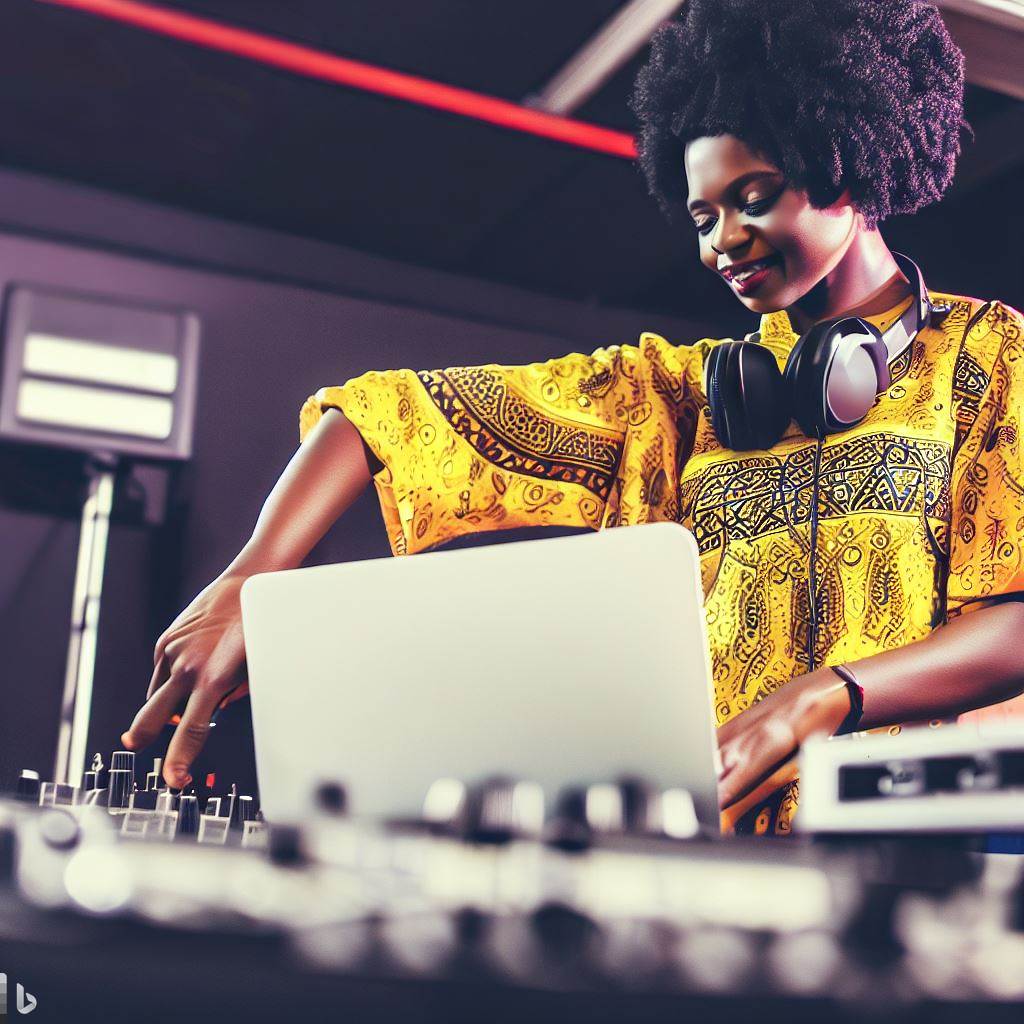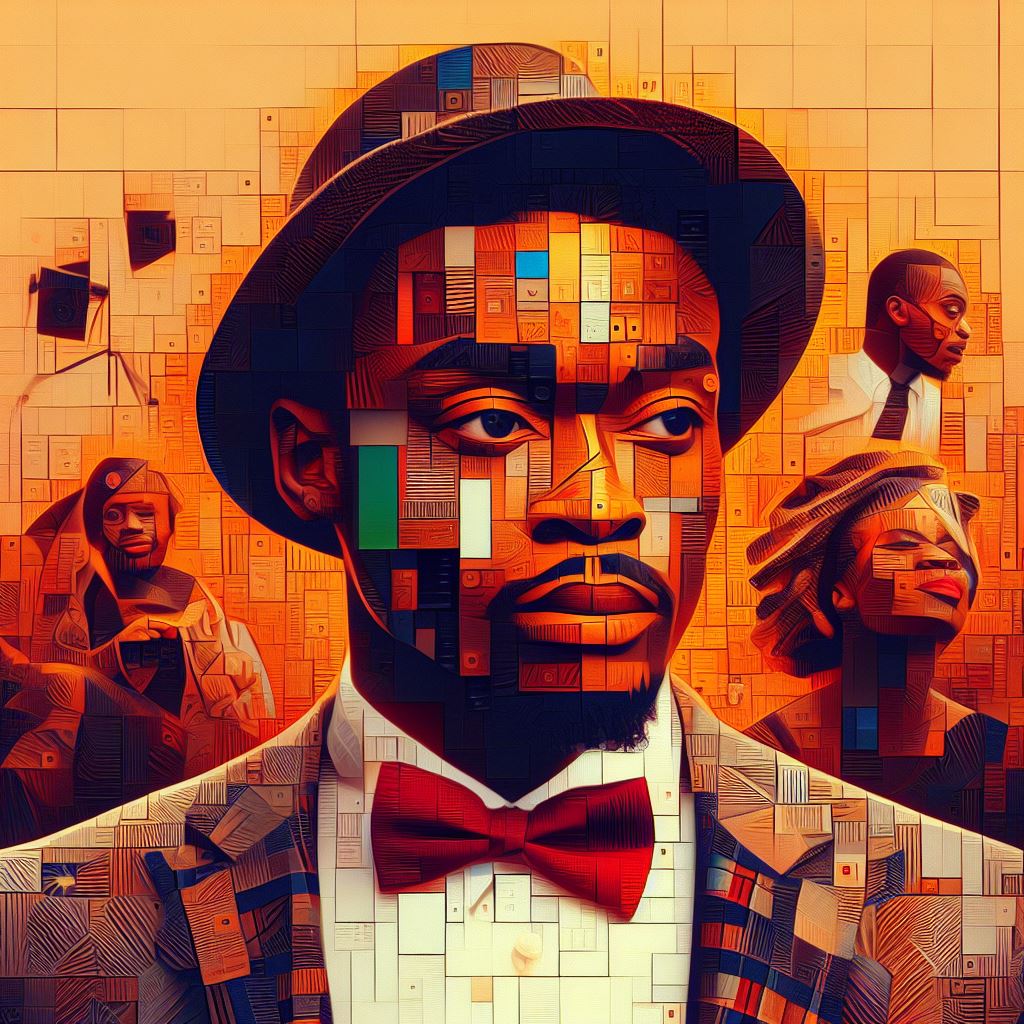Introduction
Nigeria, as a country, has produced exceptional songwriters in the Pop genre.
These individuals have not only transformed their local music scene but have also influenced the global music industry.
Their contributions cannot be understated.
Nigerian songwriters showcase their immense talent and creativity through captivating lyrics and melodies.
They effortlessly blend traditional Nigerian sounds with contemporary Pop elements, creating a unique and refreshing musical experience.
These innovative approaches have captured the attention of listeners worldwide.
The importance of Nigerian songwriters in revolutionizing music globally cannot be overstated.
They have brought a fresh perspective to the industry, infusing new rhythms and cultural elements into mainstream music.
This fusion has led to the emergence of Afrobeats as a popular genre, incorporating captivating melodies and infectious beats.
Moreover, Nigerian songwriters often address important social and political issues in their lyrics, giving a voice to the voiceless and raising awareness on various topics.
This conscious approach has resonated with many listeners, fostering a global movement of using music as a medium for social change.
In this blog post, we will delve deeper into the contributions of Nigerian songwriters in Pop, exploring their influence on the global music scene.
We will examine specific examples of Nigerian songwriters who have achieved international success and analyze the impact of their work.
Stay tuned as we embark on this exciting journey, exploring the transformative power of Nigerian songwriters in revolutionizing music globally.
Together, we will celebrate their creativity and recognize their invaluable contributions to the music industry.
Evolution of Nigerian Music
A. Historical background of Nigerian music
Nigerian music has a rich history that dates back to ancient times.
Traditional Nigerian music was influenced by various ethnic groups and cultures.
Indigenous instruments like the talking drum, shekere, and ogene played a significant role in Nigerian music.
Music was an integral part of religious and cultural ceremonies, storytelling, and social gatherings.
Colonial rule in Nigeria introduced Western music styles, like jazz, gospel, and Highlife.
The fusion of traditional and Western influences gave birth to a distinct Nigerian music sound.
B. Influence of indigenous sounds and traditional music on Nigerian pop
Nigerian pop music, also known as Naija pop or Afrobeats, draws inspiration from indigenous sounds and traditional music.
Artists incorporate Afrobeat rhythms, juju melodies, and highlife elements into their pop songs.
Instruments like the talking drum, xylophone, and flutes are often used to create authentic Nigerian sounds.
Lyrics in Nigerian pop music often tell stories, celebrate Nigerian culture, and address social issues.
The fusion of traditional and modern sounds has helped Nigerian pop music gain popularity globally.
C. Rise of Nigerian pop music on the global stage
In recent years, Nigerian pop music has experienced a tremendous surge in international recognition.
Artists like Wizkid, Davido, and Burna Boy have achieved mainstream success and collaborated with renowned international artists.
Nigerian pop music is now influencing global music trends, with artists from around the world incorporating Afrobeat elements into their songs.
The rise of digital platforms like YouTube and streaming services has provided Nigerian artists with wider exposure and reach.
Nigerian artists are now performing at major international music festivals and winning prestigious awards.
The global success of Nigerian pop music has created opportunities for Nigerian songwriters and producers in the music industry.
In short, Nigerian music has evolved over the years, taking inspiration from traditional sounds and blending them with modern influences to create a unique pop music genre.
The rise of Nigerian pop music on the global stage has brought recognition to Nigerian artists and songwriters.
With their distinct sound and storytelling lyrics, Nigerian musicians continue to revolutionize the music industry and leave a lasting impact on the world’s music scene.
Read: The Nexus of Poetry and Songwriting in Nigeria
Nigerian Songwriters and their Impact
A. Profiles of notable Nigerian songwriters in pop music
- Wizkid: An international sensation, known for his catchy melodies and collaborations with global artists.
- Tiwa Savage: A powerful female voice in the industry, her songs empower women and celebrate African culture.
- Davido: A hitmaker with a fusion of Afrobeats and pop, his music reflects his lavish lifestyle.
- Burna Boy: Known for his unique style, he brings a blend of reggae, Afrobeat, and dancehall to his music.
B. Their lyrical style and themes
Nigerian songwriters in pop music often explore a wide range of lyrical styles and themes, showcasing their versatility.
Wizkid’s lyrics are infectious and focus on love, relationships, and the enjoyment of life.
His music creates a euphoric atmosphere that resonates with his fans worldwide.
Tiwa Savage’s lyrical style combines English and Yoruba, a Nigerian language, to convey powerful messages of female empowerment and resilience.
Her songs inspire women to break barriers and find their voices.
Davido’s lyrics revolve around success, wealth, and fame.
His songs often talk about his rise to stardom and the glamorous lifestyle that comes with it, appealing to his fans’ aspirations.
Burna Boy’s lyricism is socially conscious, addressing political issues, African pride, and cultural heritage.
His songs express the struggles and triumphs of the African continent.
C. The diversity and versatility in Nigerian songwriting
Nigerian songwriters showcase a remarkable diversity and versatility in their craft, contributing to the revolutionization of music.
Their ability to seamlessly blend various genres, such as Afrobeats, reggae, dancehall, and pop, creates a unique sonic experience that appeals to a global audience.
Moreover, Nigerian songwriters infuse their lyrics with cultural references and local languages, providing a sense of authenticity and connecting with their Nigerian roots.
This diversity and versatility in Nigerian songwriting have garnered international recognition, with artists like Wizkid, Tiwa Savage, Davido, and Burna Boy collaborating with renowned international acts and topping global music charts.
Furthermore, Nigerian songwriters have shattered stereotypes and showcased the rich talent that exists within the country’s music industry.
They have proven that Nigerian artists can compete and excel on a global stage.
In fact, Nigerian songwriters in pop music, like Wizkid, Tiwa Savage, Davido, and Burna Boy, have made a significant impact on the music industry.
Their distinctive styles, innovative approaches to songwriting, and diverse themes have revolutionized the way music is perceived not only in Nigeria but worldwide.
Read: Education and Training for Songwriters in Nigeria
Influence of Afrobeat and Fusion Elements
A. Introduction to Afrobeat as a popular genre in Nigeria
Afrobeat, a genre characterized by a fusion of traditional African music and American funk and jazz, originated in Nigeria.
During the 1960s and 1970s, Nigerian musician Fela Kuti popularized Afrobeat, using it as a form of protest against the government.
Afrobeat’s infectious rhythms, powerful horn sections, and socially conscious lyrics have made it a beloved genre in Nigeria.
Its influence extends beyond Nigeria and has significantly impacted the global music scene.
B. Incorporation of Afrobeat elements into Nigerian pop music
Nigerian pop music, also known as Naija pop or Afrobeats, has been heavily influenced by Afrobeat.
Artists like Wizkid, Davido, and Burna Boy have successfully blended Afrobeat elements with contemporary sounds, creating a unique style.
They incorporate Afrobeat’s rhythmic patterns, use live instrumentation, and infuse their songs with socially conscious messages.
This fusion of Afrobeat and pop has not only gained popularity in Nigeria but also worldwide, with artists collaborating across borders.
Afrobeats’ infectious beats and catchy melodies have captivated listeners, transcending cultural boundaries.
C. How fusion of genres has contributed to the evolution of Nigerian music
Nigerian music has constantly evolved due to the fusion of various genres.
Afrobeats artists bring elements of reggae, dancehall, hip-hop, R&B, and highlife into their music, creating a diverse and dynamic sound.
This blending of genres has allowed Nigerian artists to appeal to a wider audience, both home and abroad.
The fusion has also encouraged cross-cultural collaborations, resulting in exciting musical fusions and global recognition.
Nigerian artists are increasingly showcasing their versatility by experimenting with different genres, pushing the boundaries of creativity.
As Nigerian music continues to evolve, the fusion of genres will remain a driving force behind its revolution.
In essence, Afrobeat’s influence on Nigerian pop music and the fusion of genres have revolutionized the Nigerian music scene.
Afrobeat’s foundation in Nigeria and its fusion with contemporary sounds have given birth to the popular genre known as Afrobeats.
This genre has gained massive popularity worldwide, making Nigerian artists household names.
The incorporation of Afrobeat’s rhythmic patterns, live instrumentation, and socially conscious messages has added depth and meaning to Nigerian pop music.
Furthermore, the fusion of various genres has allowed Nigerian artists to tap into different sounds and attract a diverse audience.
The evolution of Nigerian music will continue to be driven by the fusion of genres, showcasing the creativity and versatility of Nigerian songwriters in pop.
Read: Insights into Nigeria’s Indigenous Language Songwriting

Collaboration with Global Artists
A. The Impact of Collaborations between Nigerian Songwriters and International Artists
Nigerian songwriters have increasingly found success in collaborating with international artists, resulting in a significant impact on the global music scene.
These collaborations have opened up new avenues for Nigerian songwriters to expand their reach and showcase their talents to a wider audience.
The recognition gained from these collaborations has not only elevated the status of Nigerian songwriters but has also contributed to the growing influence of Nigerian music internationally.
Through these partnerships, the unique sounds of Nigerian songwriters have infiltrated mainstream music genres, enriching global music with their infectious rhythms and melodies.
B. Examples of Successful Collaborations and their Impact on the Global Music Scene
One notable collaboration that made waves in the global music scene is the partnership between Nigerian songwriter Wizkid and American artist Drake.
Their collaboration on the hit song “One Dance” reached the top of music charts worldwide, exposing millions of listeners to the vibrant Afrobeat sound.
Another successful collaboration involved Nigerian songwriter Burna Boy and British artist Stormzy.
Their joint effort on the song “Own It” showcased the fusion of Afrobeat and grime, capturing the attention of fans from both genres and generating massive popularity.
These collaborations have not only garnered critical acclaim but have also paved the way for more opportunities and crossovers between Nigerian songwriters and global artists.
The impact of these collaborations can be seen through increased recognition, chart positions, and widespread appreciation for Nigerian music on a global scale.
C. Benefits of Cross-Cultural Music Collaborations
Cross-cultural music collaborations have numerous advantages for both Nigerian songwriters and their international counterparts.
Firstly, these collaborations allow for the exchange of cultural experiences, enriching the creative process and broadening musical perspectives.
By combining different cultural elements, Nigerian songwriters and global artists can create a unique blend of sounds that appeal to a diverse range of listeners.
These collaborations also lead to a greater understanding and appreciation of different cultures, fostering unity and breaking down barriers in the music industry.
Moreover, cross-cultural music collaborations provide opportunities for Nigerian songwriters to tap into global markets and expand their fan base.
Working with international artists exposes them to new audiences, enabling them to reach listeners beyond their home country.
On the other hand, international artists benefit from these collaborations by gaining access to the rich and vibrant music scene in Nigeria.
They can tap into the Afrobeat genre’s infectious energy and popularity, allowing them to experiment with new styles and diversify their own musical repertoire.
In general, collaborations between Nigerian songwriters and international artists have revolutionized the music industry.
Through these partnerships, Nigerian songwriters have gained recognition, expanded their influence globally, and contributed to the richness and diversity of the global music scene.
Cross-cultural collaborations have proven to be mutually beneficial, fostering cultural exchanges and pushing boundaries in music.
As Nigerian songwriters continue to collaborate with global artists, the world can expect even more exciting and innovative music in the future.
Read: Navigating Challenges: Songwriting in Nigeria
Social and Political Influence in Nigerian Songwriting
A. Socio-Political Themes Addressed in Nigerian Pop Music
Nigerian pop music has become a powerful platform for songwriters to address socio-political issues in their country.
Through their music, they shed light on various topics such as corruption, poverty, inequality, and government inefficiency.
The lyrics and melodies of Nigerian pop songs often convey strong messages that resonate with listeners across the nation.
They serve as a medium for artists to express their frustration, criticisms, and aspirations for a better Nigeria.
One of the recurring themes in Nigerian pop music is corruption.
Songwriters skillfully weave narratives that expose corrupt practices within the government and society.
These songs raise awareness and prompt discussions about the consequences of corruption, urging listeners to demand change.
Poverty and inequality are also prominent issues addressed by Nigerian songwriters.
They use their lyrics to depict the struggles faced by ordinary Nigerians, highlighting the stark contrast between the rich and the poor.
This serves as a call to action, inspiring listeners to advocate for economic equality and social justice.
B. Importance of Nigerian Songwriters in Addressing Societal Issues
Nigerian songwriters play a crucial role in addressing societal issues because their music has a wide reach and influence.
Their songs permeate every corner of the country, from radio stations to clubs, and are eagerly consumed by a large and diverse audience.
Through their lyrics, Nigerian songwriters give a voice to the voiceless and marginalized communities.
They amplify the concerns and frustrations of the people, providing a platform for the masses to be heard.
In a society where marginalized voices are often silenced, these songwriters become catalysts for change.
Furthermore, Nigerian songwriters act as social commentators, presenting alternative perspectives on pressing issues.
They challenge the status quo and hold those in power accountable for their actions.
By doing so, they instigate conversations and encourage critical thinking among listeners.
C. Influence of Their Music on Cultural Change and Political Awareness in Nigeria
Nigerian pop music has played a significant role in fostering cultural change and political awareness among the Nigerian population.
The catchy beats and infectious melodies attract people from all walks of life, transcending language barriers and uniting the nation under a shared love for music.
The socio-political messages embedded in Nigerian pop songs have the power to mobilize and inspire individuals.
They compel people to take actions, whether it be actively participating in political movements, engaging in grassroots initiatives, or simply being more conscious citizens.
Additionally, Nigerian songwriters have successfully used their music as a tool for political mobilization.
During election seasons, artists collaborate to create songs that promote civic engagement, encourage voter education, and discourage electoral violence.
These efforts contribute to a more politically aware and active Nigerian society.
In brief, Nigerian songwriters have revolutionized music by addressing socio-political issues through their powerful lyrics and compelling melodies.
Their music serves as a mirror for the nation, reflecting the challenges and aspirations of the Nigerian people.
By leveraging their influence, these songwriters bring about cultural change, ignite political awareness, and pave the way for a better future in Nigeria.
Challenges and Future Opportunities
A. Challenges faced by Nigerian songwriters in pop music
- Limited access to resources such as quality recording studios, equipment, and professional producers.
- Insufficient financial support and investments for aspiring songwriters to produce and promote their music.
- Lack of proper copyright protection and enforcement, leading to the exploitation of songwriters’ work.
- Limited opportunities for collaboration and networking within the music industry, hindering growth and exposure.
- Difficulty in receiving fair royalties and compensation for songwriting contributions in a digital streaming era.
B. Potential opportunities and avenues for growth
- Expansion of digital platforms and streaming services creates wider distribution channels for Nigerian songwriters.
- Growing interest in African music globally provides opportunities for international collaborations and exposure.
- Increased investment in music education and training programs to develop young songwriting talent.
- Government initiatives and policies that promote the growth of the music industry and support local talents.
- Leveraging social media and online platforms to connect with a wider audience and build a fan base.
C. Importance of support systems and platforms for emerging talent
- Music organizations and associations can provide mentoring, funding, and advocacy for songwriters.
- Music festivals and talent showcases offer platforms for exposure and networking opportunities.
- Development of music publishing companies that can support songwriters in copyright protection and monetization.
- Collaboration with established artists and producers can provide mentorship and opportunities to learn and grow.
- Cultivating a supportive community of fellow songwriters and artists who can provide feedback and encouragement.
In review, Nigerian songwriters in pop music face various challenges, including limited resources, financial support, copyright protection, networking opportunities, and fair compensation.
However, there are also promising opportunities for growth and development, such as the expansion of digital platforms, international collaborations, government initiatives, and the use of social media.
To fully realize their potential, emerging songwriters require support systems and platforms that provide mentoring, funding, networking opportunities, copyright protection, and a supportive community.
With the right efforts and investments, Nigerian songwriters can revolutionize the music industry and make a significant impact on the global stage.
Conclusion
In this blog post, we have explored the remarkable impact of Nigerian songwriters in revolutionizing pop music.
We highlighted their exceptional talent, creativity, and ability to blend various musical genres.
It is crucial to recognize the significant role Nigerian songwriters play in shaping the global music landscape.
They have successfully infused their cultural heritage into pop music, making it more diverse and vibrant.
As we conclude, let us remember that the influence of Nigerian songwriters in pop music is far from over.
With their unique perspectives and boundless creativity, they have the potential to continue transforming and enriching the music industry worldwide.




